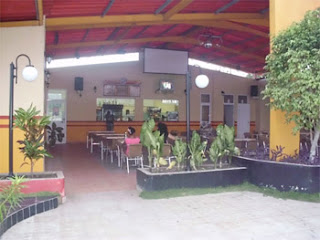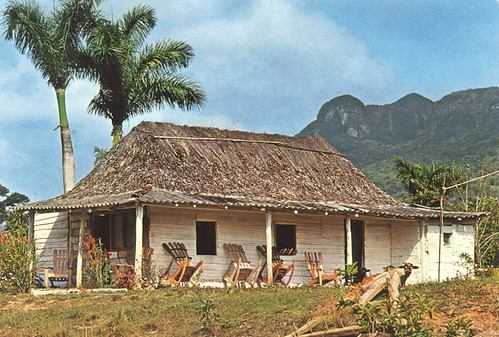Alberto N. Jones
HAVANA TIMES — This summer I stayed in Guantanamo longer
than usual as my trip coincided with the National Rebelliousness Day
celebration of July 26 being held there, plus there was the annual carnival
festivities in that city.
Intense construction/restoration activity in the province
(typical of the province hosting the commemoration) included the completion of
an important stretch of the national highway, linking Guantanamo to the town of
Belleza, a project halted over 20 years ago.
There was also the re-paving of the city’s main arteries,
the termination and/or reconstruction of several public works projects, the
completion of a beautiful boulevard that has now become the center of
recreational activities in the city, and the painting of hundreds of houses and
buildings. All of this gave the city a freshness that it had been lacking for
decades and provided temporary relief for all of its citizens.
The July 26th celebration in any city in Cuba is a source
of local pride and joy, which was widely expressed throughout Guantanamo and
culminated in the conclusion of four days of festivities.
Beyond the surface
However, for those of us who love Guantanamo, for those
who struggle day after day to make this region occupy the place it deserves in
the country, for those who suffer in the face of the prevailing state of
deterioration, the start-up of some kind of subsistence business of their own
or their immigrating to another country has nothing to do with the 50 years of
hard struggles and sacrifices we have made as a community.
What one finds now is a lack of development and sad
prospects for thousands of youths without jobs or futures and whose only goal
is to “inventar” (hustle), which pushes them that much closer towards the world
of crime.
The socio-economic situation of southeast Cuba is
serious, urgent, heartbreaking and debilitating. It encompasses communities,
towns and cities in a stifling atmosphere of utter frustration and
powerlessness, all of which ends up ripping apart the essential fiber and
values of society.
Thousands of college graduates and technicians are
jobless, wandering aimlessly and hopelessly, forgetting in minutes what they
learned over years. Enrollment in the middle and upper levels has been
significantly reduced and all services have degraded, adversely affecting the
level of happiness and satisfaction of the whole community.
The impacts of disincentives and insufficient wages have
been compounded by the layoffs of one or more family members in many homes,
placing these social units on the brink of economic collapse. The need to
provide “gifts” for access to all kinds of services has increased exceedingly,
dehumanizing society and turning the majority — those without access — into
machines focused on survival, ones that don’t care about the situations of
others.
The embezzlement of funds, outright theft, the
adulteration of products, “fines” by inspectors, the abusive costs of products
sold in hard currency CUCs and the lack of a wholesale market are just some of
the more obvious evils that reflect a lack of coordination between different
government run companies. This has led to stagnation and even retrogression in
relation to some of the plans set out in the “Guidelines” of the party.
Thousands of people responded to the call of the
government to recover vacant agricultural land that had been devoured by
overrunning marabou bushes. These people took to the fields to produce food for
the population and reduce costly imports.
Despite the rigid bureaucracy and the resistance to
change of the Ministry of Agriculture and their lack of tools and agricultural
implements, huge areas of land have been cleared, planted and cultivated using
archaic methods, such as yoked oxen and wooden plows.
The lack of fertilizers, pesticides and seeds, as well as
the prohibitive cost of fuel that prevent the use of irrigation systems, the
high cost of agricultural transportation and a significant decline in the
purchasing power of the public threatens to derail this project of vital
importance.
Notwithstanding all of this, if the problems outlined
above seem serious, these pale when visiting any of the old Guantanamo province
sugar refineries like those named Costa Rica, Honduras, Romelie, Tames,
Paraguay, etc.
The mills in those places were demolished allegedly for
being unproductive, but no approaches were found to replace those jobs with
alternative employment. This resulted in those communities becoming human
cemeteries full of impoverished, demoralized and alcoholic ex-sugar workers,
unable to meet the obligations of their households.
As collateral damage, this tragedy has brought with it
the losses of dozens of trades, crafts, love for the land and a sense of
belonging, something which young people have no knowledge of and don’t seem
interested in recapturing.
The extreme severity of the problem means that
sentimentality, indecisiveness or half measures cannot be tolerated. Only an
urgently needed radical surgery will be able to prevent the sea of death,
rivers of blood and massive physical destruction that the concerted strategy of
permanent foreign threat and deprivation has fostered.
This has created a siege mentality, one of citizen
persecution and counterproductive reactions by the Cuban government, which has
thereby laid the foundation for a social disaster such as those in Syria,
Libya, Yemen, Iraq and Afghanistan.
All of this convincingly demonstrates that while the US
soldiers stationed at the Guantanamo Naval Base enjoy the whole range of
amenities that exist in that inhospitable location, for decades the city of
Guantanamo has been deprived of the use of its beaches, rivers, valleys and
mountains that have been declared a military zone.
Cuba remains one of the most desirable places in the
world for its beauty, unique geographical location, climate, low crime, free
quality education and health care, its ethnic composition, ecological diversity
and its unique people.
Therefore nothing can explain, rationalize or justify the
persistence of an acute economic and social crisis that is threatening to
devour this now lethargic (even catatonic) country that has resulted from
self-inflicted, necrotic, hyper-centralized decisions.




